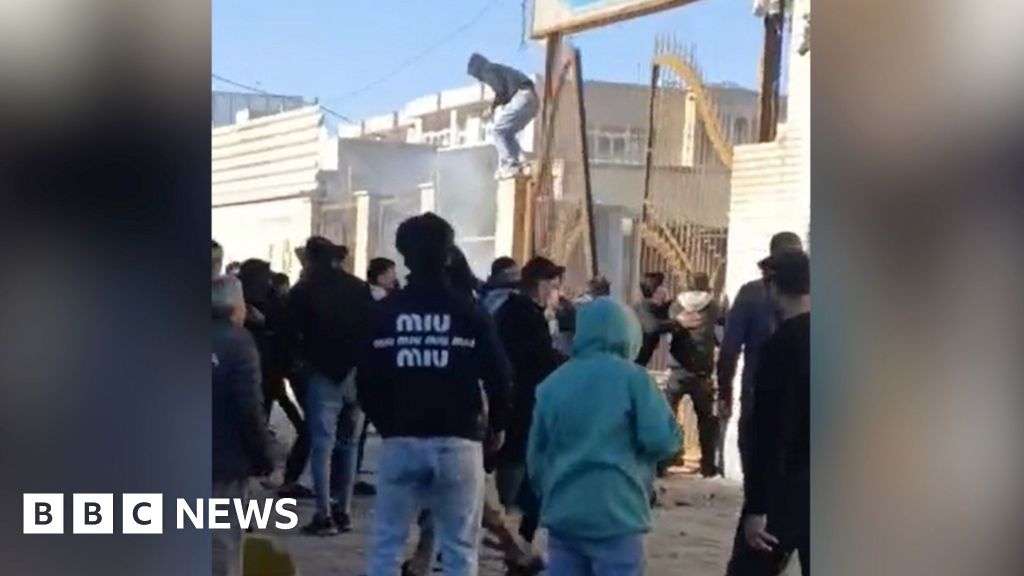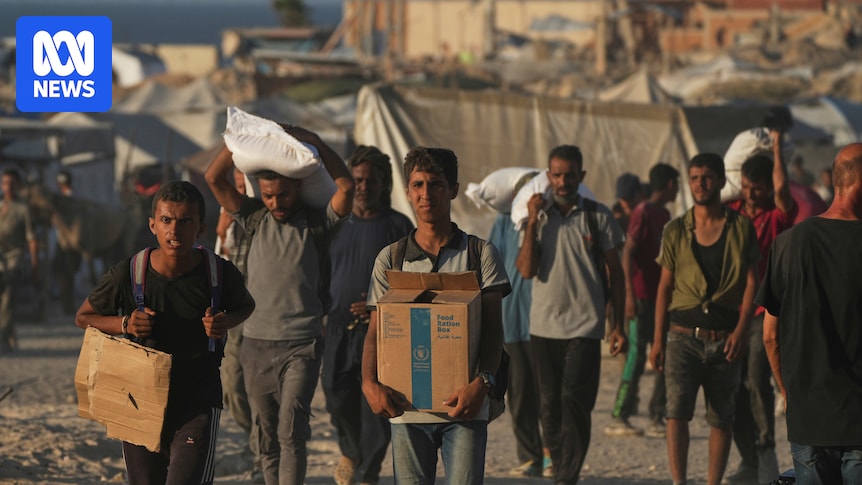- Ukraine: Attacks disrupt heating as temperatures plunge Department of Political and Peacebuilding Affairs
- ‘No reason to stop living’: Ukrainians find ways to cope with power cuts as Russia pounds the energy system CNN
- ‘Russia brings war to…
Category: 2. World
-
Ukraine: Attacks disrupt heating as temperatures plunge – Department of Political and Peacebuilding Affairs
-
Another child dies in extreme conditions in Gaza: UNICEF
A sixth child has died in Gaza this month as the enclave’s people continue to endure dire living conditions linked to freezing rains and the Israel-Hamas war, the UN Children’s Fund (UNICEF) has announced. The development comes as aid…
Continue Reading
-

New Year Address to the Nation • President of Russia
President of Russia
Vladimir Putin: Citizens of Russia, friends,At this moment, as we stand on the threshold of the New Year, we all feel the passage of time.
Before us lies the future, and what it holds largely depends…Continue Reading
-

Zohran Mamdani to become NYC’s next mayor with a midnight oath underground
Zohran Mamdani will become mayor of New York City as the clock ticks over into 2026 — but the celebrations are set to last through New Year’s Day.
The Democrat’s team is planning two separate swearing-in ceremonies Thursday…
Continue Reading
-

Iran protesters try to break into government building as unrest continues
Protesters in Iran have tried to break into a local government building in the southern province of Fars, on a fourth day of demonstrations sparked by a currency collapse.
Officials said three police officers were injured and four people arrested…
Continue Reading
-
Results expected 5 January after landmark elections in Central African Republic – UN News
- Results expected 5 January after landmark elections in Central African Republic UN News
- What to know about the Central African Republic ahead of its election AP News
- CAR opposition’s Dologuélé votes, warns voters ‘not to regret’ their…
Continue Reading
-

Israel banning dozens of aid organisations from operating in Gaza
Israel is banning dozens of major aid organisations, including some of the world’s best-known charities, from working in the Occupied Palestinian Territory, saying they have failed to meet new registration requirements.
The agencies said the bans…
Continue Reading
-

What ABC journalists will be closely watching in 2026
What will you be watching closely in 2026?
That’s the question we asked the ABC’s foreign correspondents and global affairs journalists.
Our reporters acknowledged the huge shifts in 2025 that have set the political and economic stage for the new…
Continue Reading
-

Anthony Joshua: Boxing promoter Eddie Hearn says fighter’s friends will be ‘deeply missed’ after fatal crash
Matchroom promoter Eddie Hearn says the “great qualities” of Anthony Joshua’s friends Sina Ghami and Latif “Latz” Ayodele, who were killed in a car crash in Nigeria, will be “deeply missed”.
Ghami and Ayodele died when the vehicle they were in,…
Continue Reading
-

How Saudi Arabia and the UAE’s long alliance ruptured
It was a covert military shipment docking at a Yemeni port that finally brought simmering tensions between Gulf heavyweights Saudi Arabia and the United Arab Emirates dramatically into the open.
Riyadh had for weeks been unsuccessfully using…
Continue Reading